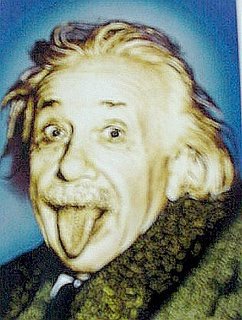
 Schools seem obsessed with literacy and to lesser degree numeracy. As important as they are they put the horse before the cart.
Schools seem obsessed with literacy and to lesser degree numeracy. As important as they are they put the horse before the cart.All invention and creation begins with an idea, problem, challenge or experience which in turn creates the need to know more, to define what has been discovered, or to express in some form their new ideas.
This is how it is with children before they come to school and it is the way scientists and artist work in real life.
But not so in school.
There reading and mathematics need to be taught for there own sakes or as ‘foundations’ for other learning. Sure teachers develop areas of interest to involve children but it areas they decide and children learn to do what is expected of them.
And this takes up the ‘prime time’ of the school day – the two areas combined taking up all the time and teachers energy until lunchtime.
Little is left to introduce experiences from all the other Learning Areas to inspire learning, personal expression, to integrate literacy and numeracy in realistic contexts, or opportunities to develop students’ talents and their imagination.
As one UK commentator has said, ‘The evil twins of literacy and numeracy have gobbled up the rest of the curriculum.’
All that remains is an updated version of a Victorian ‘Three Rs’ curriculum.
Students’ creativity and insight is developed through tackling real problems not finding solutions to problems or tasks others have given them. This is the beginning of the depersonalization of education that reaches its heights in the secondary system. No wonder Einstein wrote that it was almost impossible for a child's imagination and sense of wonder to remain intact in modern schools.
What are missing are the personal stirrings and strivings of self discovery – the innate drive to make sense that is every learner’s right is replaced by teacher planned activities that miss out on the personal investment and emotional learning that typifies pre-schoolers and scientists or artists.
Insight often comes direct from the imagination and Einstein himself said the, ‘words or the language, as they are written or spoken, do not seem to play any role in my mechanism of thought.’ He continues by saying, ‘Conventional words or other signs have to be sought for laboriously only in a secondary stage.’
Imagination, or inspiration, comes before literacy and numeracy in Einstein’s world – I would guess the same applies to all learners.
Perhaps we are all visual thinkers first, sorting out images, relationships and rehearsing in our minds, and falling back to literacy and numeracy to sort the ideas out later for publication?
‘Before the word is the experience’ – unpacking experiences and making sense of them is what learning is all about. And the experiences that count are the ones that make sense to the individual learner.
And if the means to express experiences are restricted to words and numbers students are receiving ‘thin’ learning indeed. And if numeracy and literacy are allowed to ‘gobble up’ too much of students time, time that ought to be dedicated to ‘rich’ personalized experiences, then students are the losers.
With the source of their personal investment in their own learning ignored it is no wonder that many students eventually 'disengage' from their schooling. It would seem a sensible thing to do!
5 comments:
Yes, for if imagination is the beginning point then other 'problems' that many books have been written about such as 'motivation to read' etc would be solved!
Jody
Thanks for your comment Jody!
As you infer we make hard work for ourselves by ignoring the very motivations all children bring to school with them.
Finally there are teachers who believe there are some children who can't learn which, of course, goes against human evolution.
It is not the students who are failing!
Creativity is to 'wild' for the school system to face up to full, as it is, of conformist teachers, or people who have never experienced the feelings of personal expression themselves.
You cannot assess creativity with exemplars or criteria - only by students challenging their previous 'best'.The former only results in polished mediocrity.
It is interesting to talk to people about their schooling and what influence it has had on their lives. Often what you find is that life long interests have been developed in spite of their schooling, not because of it.
Sometimes significant teachers are mentioned because of their ability to connect with a student's personal interests or talents but this is sadly a rare event. No matter how many new curriculum variations are introduced it is the essential purpose of learning for the sake of the learner that is the important thing. The pseudo science of covering strands and meeting objectives has nothing to do with this. Curriculum documents may be useful guidelines for general reference but when they dominate, oppress or cloud the actions of teachers and their relationship with their students they in fact destroy the very thing they attempt to achieve.
Coudn't agree more - we ought to track back successful creative people to see how they felt about their school experience. Be great to ask such people to design a school to develop creativity.
Post a Comment